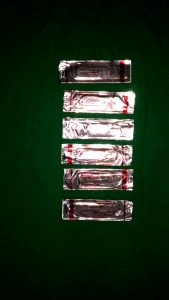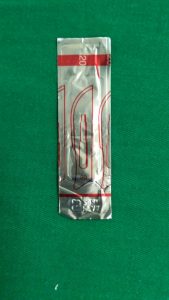A surgical cut made into a tissue or organ called an incision. Surgical scalpel blades used to make incisions and for excision of tissues or organs.
Surgical scalpel a very sharp knife. Often the bp handle and the blade are packaged separately and assembled by the surgeon at the beginning of the operation; this maintains the sterile field. In some cases, a surgical scalpel a single unit made for single use only.
Replaceable blades and handles come in different sizes and styles so the surgeon can perform operations on all types of animals. A dissecting scalpel or tenotome is for fine dissection and cutting or dividing tendons
Scalpel blades instrument
7 BP handle with the 15# blade (deep knife) – Used to cut deep, delicate tissue.
3 BP handle with the 10# blade (inside knife) – Used to cut superficial tissue
Surgical Blade
Surgical blade designed manner to avoid the maximum deep cut while using. Allows the surgeon to make the incision by the structure like skin, subcutaneous and rectus muscle
The main difference between the normal blade to the surgical blade vary. The design matter in a surgical blade, can’t allow cutting any structure within a cut.
#10 Blade

Surgical Instrument: 10 Blade
Alias: Skin Blade
Use: For making the skin incision
4 handle with the 20# blade (skin knife) – Used to cut skin.
scalpel 11 Blade
Used in incision and drainage for puncturing the lipoma, sebaceous glands infection. The used in anesthesia practices in the CVP-Central Venous pressure catheter placement and in femoral dialysis catheter insertion.
#15 Blade
Used in minor surgery and in Ophthalmology surgery for the incision. The blade designed in a manner to make a small incision for minimal skin damage.
#20 Blade
Used in Abdominal surgery for the continuous incision.
#21 Blade
#22 Blade
#23 Blade
#24 Blade
#25 Blade